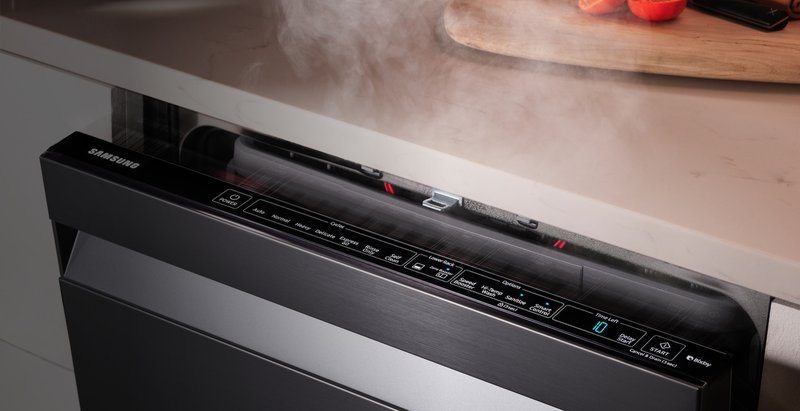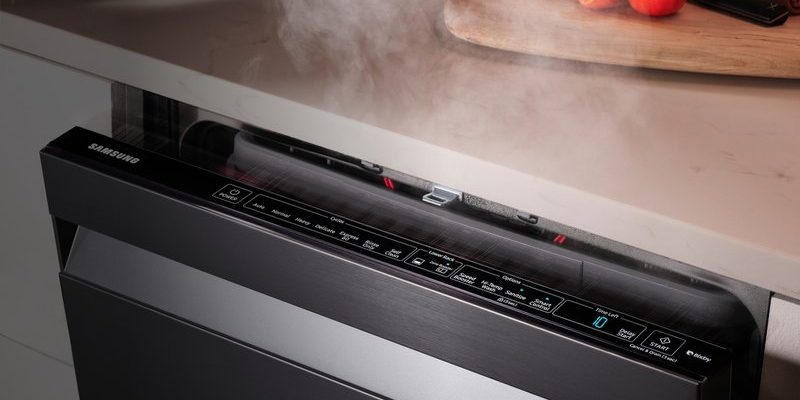
Imagine moving into a cozy apartment where the landlord has thoughtfully installed a sleek Samsung dishwasher. You’re thrilled—no more washing dishes by hand! But then you hear about registering appliances for warranty or smart features and wonder, “Can I, the tenant, register a dishwasher that the landlord bought?” It’s like inheriting someone else’s gadget and not being sure if you can unlock all its perks.
Honestly, it can feel a bit confusing. Appliances like Samsung dishwashers often come with warranties and smart capabilities tied to registration. But since the landlord bought the dishwasher, the question is—who holds the right to register it? Let me explain how it works, what options tenants have, and why this little detail actually matters.
Understanding Appliance Registration: What Does It Mean?
Registration is more than just filling out a form online. When you register a Samsung dishwasher, you’re linking ownership details to the manufacturer’s system. This can activate warranty coverage, qualify the appliance for recalls or service updates, and unlock support options. For smart dishwashers, registration may also enable app syncing and remote control features.
Think of it like signing up your phone with the carrier. Until you do, you might not get the full range of services that come with the device. Similarly, if the dishwasher is never registered—or registered only by the landlord—it could limit who gets notified about repair programs or how the appliance integrates with smart home systems.
So, registration is an important step in making sure the dishwasher is covered and fully functional. But here’s the tricky part: the registration process often asks for purchase details, and those usually belong to whoever bought the dishwasher—in this case, the landlord.
Who Typically Owns the Dishwasher on a Rental Property?
When it comes to rented homes, the landlord usually owns the appliances. That means the Samsung dishwasher is the landlord’s property, just like the fridge or oven. You, as a tenant, get to use it, but technically it’s not yours to keep once the lease ends.
This ownership setup affects who can register the dishwasher. Since registration often requires proof of purchase—the invoice or receipt—tenants don’t always have that information handy. The landlord likely has it, because they made the purchase.
Of course, this varies depending on lease agreements. Some landlords might encourage tenants to register the appliance to ensure quicker service if something goes wrong. Others might handle all registrations themselves as part of property management. That’s why checking your rental agreement or asking directly can clear up a lot.
Why Does Ownership Affect Registration?
Ownership is key because warranty and repair policies are tied to the original buyer. Samsung’s warranty usually covers the “original purchaser,” meaning the landlord. When a tenant tries to register, the system may flag that the purchase details don’t match or that the appliance is already registered.
It’s a bit like trying to register a car under someone else’s name without a title transfer—it’s not straightforward. So, if you’re a tenant wondering about registration, remember that the system is designed to connect the dishwasher to the person who bought it in the first place.
Can Tenants Register Samsung Dishwashers Themselves?
Here’s the thing: in many cases, tenants can’t fully register the dishwasher unless the landlord provides the purchase details or permissions. Registration typically asks for a model number, serial number, and proof of purchase. Without the invoice or receipt, the tenant is stuck in a limbo.
However, tenants can still do a few things:
- Use the dishwasher’s features: Even without registering, the dishwasher will work fine for daily use.
- Access smart functions: Some Samsung dishwashers have Wi-Fi and app control that tenants can set up independently, using the serial number on the machine, without registration.
- Request the landlord to register: Since the landlord owns the appliance, asking them to register it under their name ensures warranty and service coverage.
Honestly, if you’re the tenant and want peace of mind about repairs or warranty, it’s best to talk with your landlord. Sometimes, landlords are happy to register the appliance and share warranty info if asked.
What If a Tenant Tries to Register Without Proof of Purchase?
If a tenant attempts to register online without the purchase invoice, they might hit some roadblocks. Samsung’s registration site often requires purchase date and store information, which tenants generally don’t have.
Besides, the system might recognize the serial number as already registered. This prevents duplicate registrations and keeps warranty records clean. So without landlord cooperation, tenants usually can’t complete official registration alone.
Smart Features and Syncing: Does Registration Matter?
Many newer Samsung dishwashers come with smart tech that connects to your smartphone app for remote monitoring, cycle setting, and troubleshooting. You might be wondering if you can just pair and sync your phone without registering the appliance.
Good news: in most cases, you can use the dishwasher’s smart features without full registration. The sync process often just needs the dishwasher’s serial number and Wi-Fi connection.
Here’s the catch: registration might unlock additional benefits, like extended support or alerts on recalls. But for daily app use, you don’t usually need the landlord’s purchase invoice. Just follow Samsung’s app setup instructions, reset or pair the dishwasher using the remote or onboard panel, and you’re good to go.
Step-by-Step: Pairing Your Samsung Dishwasher with the App
- Find the dishwasher’s model and serial number on the inside panel or door frame.
- Download the Samsung SmartThings app on your phone.
- Connect the dishwasher to your home Wi-Fi network via the appliance control panel.
- Open the app and select “Add Device,” then choose “Dishwasher.”
- Follow prompts to complete pairing—usually involves entering the serial number or scanning a QR code.
If you run into sync problems or connection errors, try resetting the dishwasher’s Wi-Fi module or checking your network’s stability. This troubleshooting often resolves pairing headaches.
What Happens If There’s a Problem? Warranty and Repairs
When something goes wrong with a Samsung dishwasher, warranty and service become crucial. Here’s where registration—or lack of it—really matters. If the dishwasher is properly registered in the landlord’s name, warranty repairs tend to be smoother.
But what if a tenant experiences a breakdown? Since the landlord owns the appliance, the tenant usually reports the issue to them. The landlord can then contact Samsung or an authorized technician to arrange repairs under warranty.
This setup makes sense because warranty providers want the registered owner to handle claims. Tenants don’t typically have the legal right to file warranty claims for appliances they don’t own. It’s a bit frustrating, but it’s the system’s way of keeping ownership and responsibility clear.
Tenant Tips for Handling Repairs
- Notify the landlord immediately when the dishwasher malfunctions.
- Document the issue with photos or videos to support repair requests.
- Check the lease agreement to see if appliance repairs fall under landlord duties.
- Keep records of communication with your landlord about the issue.
Usually, a good landlord will take care of repairs promptly, since a working dishwasher adds value to their property.
Alternatives: What If You Want to Register Your Own Dishwasher?
If you’re renting and considering buying your own dishwasher or replacing the landlord’s appliance, registration becomes straightforward. As the purchaser, you’ll have the invoice and can register the dishwasher right away, securing warranty and support benefits.
Sometimes tenants bring in universal or brand-specific remote controls or accessories for convenience. These don’t affect ownership but can improve how you interact with the dishwasher, like resetting cycles or troubleshooting. But keep in mind, these don’t replace the official registration process.
In short, owning your own appliance means you control the registration, syncing, and warranty processes—no landlord permission needed.
Wrapping It Up: What You Need to Know
So, can tenants register Samsung dishwashers purchased by the landlord? The short answer is usually no—because registration centers on the buyer, who’s often the landlord. But that doesn’t mean tenants are left out in the cold. You can use all the dishwasher’s features, pair it with apps, and enjoy your sparkling clean dishes without hassle.
If you want the dishwasher fully registered, the best move is to chat with your landlord. They might already have it registered or be willing to do it for you—which benefits everyone when it comes to repairs and warranty. Understanding who owns the appliance and what registration means clears up confusion and keeps your kitchen running smoothly.
Think of it like borrowing a friend’s car—you can drive it, enjoy it, and even pair your phone to the stereo, but the car’s title stays in your friend’s name. Registration is just about making sure the right person holds the paperwork, so everything works as it should.
